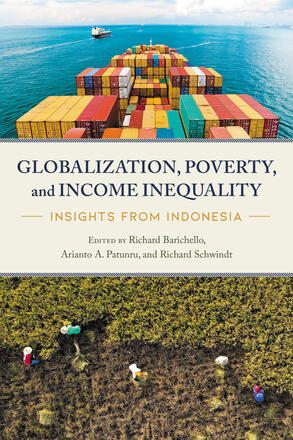
Globalization, Poverty, and Income Inequality
Insights from Indonesia
Description
Globalization, Poverty, and Income Inequality examines the relationship between globalization and trade liberalization, and poverty and income inequality, using Indonesia as a case study. Contributors examine how advances in coffee certification, treatments for visual disabilities, and property rights, among other factors, have had both meritorious and deleterious effects on the local population. Ultimately, they describe an ambiguous relationship between trade liberalization and inequality, both of which can increase or decrease in proportion to one another depending on region and sector. This empirically driven work provides a nuanced view of the trade-poverty relationship, contributing balanced testimony to policy debates being held internationally.